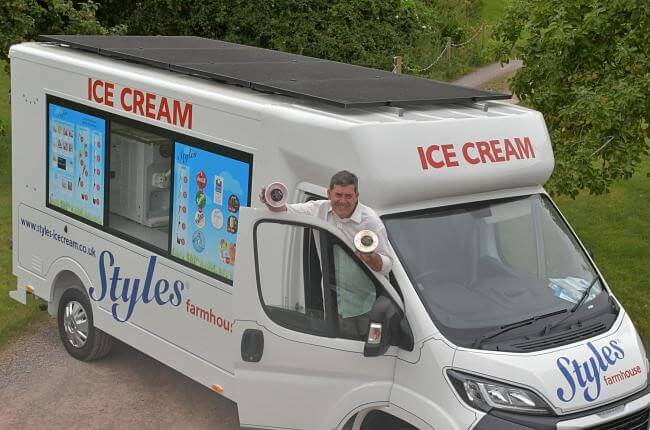What is the Most Efficient Solar Panel?
At Joju Solar, one of the most common questions we are asked is “what is the most efficient solar panel?” We’ve compiled a guide to the best of the best.
At Joju Solar, one of the most common questions we are asked is “what is the most efficient solar panel?” We’ve compiled a guide to the best of the best.
The heatwave of earlier in the summer may seem a distant memory for most, but a change in the weather across the UK doesn’t mean that the world of renewables has stood still. We have complied some of the many ways in which renewable energy has been making the news in August 2018.
A recent YouGov poll has indicated that over 60% of Brits would be willing to install solar panels and home battery storage systems at their residences if there were greater assistance from the UK government. 62% of those polled said that they wanted to fit solar PV systems at home and 60% stated that they would be interested in buying a home battery storage solution, such as the Tesla Powerwall 2. With traditional energy prices rising again for many this year, it seems that more and more people are looking towards renewable energy solutions as a real and accessible answer to saving money on their bills and benefitting the environment. The results of this poll come in spite of last month’s news that the FiT tariff is expiring in March 2019, with no replacement incentives currently expected to be announced. However, the questions to UK householders were framed with an indication that the UK government would give greater assistance for these technologies to be installed or used in the home.
Facebook announced this month that they are aiming to be powered by 100% renewable energy by 2020, and will cut their greenhouse gas emissions by 75% over the same period of time. They are doing this by powering their global data centres with solar and wind energy exclusively, thanks to a record-breaking year of corporate energy purchases for them. Facebook claim that they will also design or upgrade their office buildings, both existing and new, to be more energy efficient and be powered by 100% renewable energy by their deadline at the end of 2020.
Having achieved their previous target of 50% renewable energy a year early (in 2017 rather than 2018 as originally planned), Facebook cite this latest goal as a continuation of their support for climate action and the Paris Agreement.
It will be interesting to see whether other tech giants, such as Google, try to follow suit over the next couple of years and make changes that benefit the environment too!
EV Volumes (the electric vehicle world sales database) have announced that the number of plug-in vehicles (pure EV and PHEV) across Europe have now surpassed a million in number, with an increase in sales of 42% compared to the same period in 2017.
Norway, Iceland and Sweden lead the way in terms of plug-in vehicle adoption so far this year, correlating with some strong incentives from their governments and a strong charging infrastructure already in place in many areas.
The number of electric vehicles across Europe is expected to surpass 1.34m by the end of 2018, which will be around 2.35% of all new car and van registrations; leaving plenty of room for further growth as the charging infrastructure improves in more countries and new incentives potentially become available in different nations.

Image credit: Bridgwater Mercury
An ice cream company based in the South West of England have become the first in the UK to fit out one of their ice cream vans with its very own solar PV system. More than a year in the planning and making, the Styles Ice Cream van uses roof-mounted solar panels to charge on-board batteries that keep the freezers, fridges and lights running when the van is parked up. On sunny days, the solar power generated provides 100% of the van’s needs, with a backup LPG generator used occasionally for short periods when the weather is not quite as kind.
With conventional ice cream vans, the diesel engine is often kept running most of the time to provide the power needed on-board, which is not only expensive, but also means the area around the van can be heavy with emissions. The ice cream company responsible claims that the system is saving them around £15 per day on fuel, plus any electricity hook-up costs when they park up at a country showground (up to £150) and they are making plans to roll out solar PV systems to the other ten ice cream vans in the fleet, in the near future.
In our latest blog, we look ahead to see what the 2018 holds for the distributed energy technology sector.READ MORE
Joju have been nominated three times at this year’s Solar Power Portal Awards
Designing high quality solar systems isn’t as easy as you’d think.
Why solar is still the way to go
Joju’s Head of Engineering James Page makes a compelling case for why Solar is still a sound investment.READ MORE
A new petition from Greenpeace calls on people to help prevent the Government from hitting the solar industry in the UK further with a planned tax increase, which will affect schools and businesses negatively.
We recap on our fantastic three nominations for awards at this year’s Solar Power Portal Awards in Birmingham.
Joju’s Dr Chris Jardine will be speaking next week at Solar Energy UK at the NEC in Birmingham on ‘Selling Commercial and Residential Storage’
Stunning footage of the biggest community-owned roof top solar installation in the UK as well as a feature on BBC South for Joju’s incredible installation at Prodrive, Banbury.


